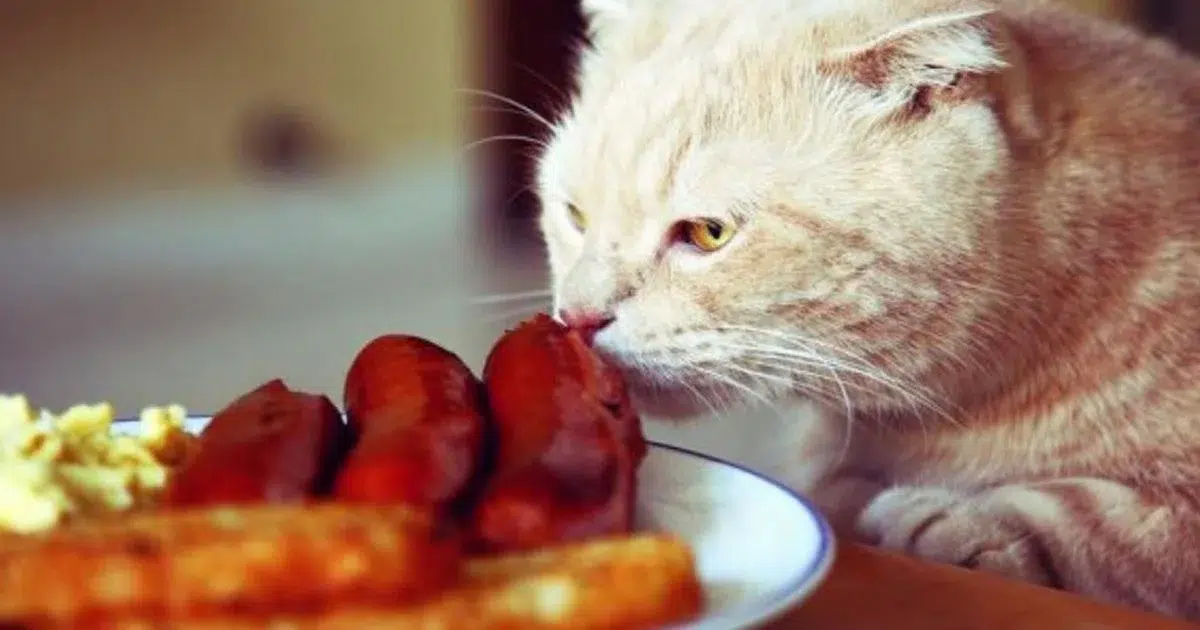As a feline parent, it’s tempting to share table scraps and leftovers with your fur baby. And, one popular human treat that often tempts pet parents is pizza – irresistible to us and seems appealing to our pets. But, the pressing question is, Can cats eat pizza? or cats consume pizza roll? And , Is it safe for them? Let’s delve into this matter and explore what feline nutrition experts have to say.
Do Cats Need Pizza in Their Diet?
The simple answer is, no. As obligate carnivores, cats require protein from meat and poultry in their diet and possess a unique metabolism that requires essential nutrients like taurine, arachidonic acid, vitamin A, and vitamin B12, which are absent in food like pizza.
Debunking the Pizza Ingredients: What’s Safe and What’s Not?
Pizza, an internationally loved Italian dish, is adorned with a variety of ingredients. Let’s focus on the core ingredients:
1. The Crust
As much as your cat might like the taste, cats cannot process dough properly due to their carnivorous nature. Consuming too much bread can cause gastrointestinal upset, and if it contains raw dough, it could potentially result in toxic effects due to uncooked yeast – a significant risk factor for our four-legged friends.
2. The Salt
Pizza crust and many of its toppings are often high in sodium. Excessive salt intake can lead to salt poisoning, resulting in severe neurological symptoms.
3. Garlic and Onions
Garlic and onions are toxic to cats, even in small amounts. These ingredients can cause destructive changes to red blood cells, leading to life-threatening conditions.
4. Cheese and Meats
While some cats can tolerate cheese and meat, they are generally high in fat and salt, and their excessive consumption can lead to obesity and other health complications.

Healthy and Safe Alternatives
Instead of pizza, consider offering your cat some homemade treats like shredded chicken, fish, or commercial treats designed specifically for cats’ nutrition needs. Always remember that treats should make up no more than 10% of your cat’s daily caloric intake.
Interact With Us
We’d love to hear about your experiences with this. Leave a comment with your thoughts or any related questions you might have you have with Cooper Pet Cares.
Conclusion
In the end, while it’s tempting to share a pizza slice with your beloved feline, it’s best to stick to cat-friendly foods and treats. Your cat’s health isn’t worth the risk.
Frequently Asked Questions
Is pizza safe for cats to eat?
No, pizza is not considered safe for cats due to its high salt content, potential toxic ingredients (like onion and garlic), and lack of nutritional value for pets.
Can cats eat pizza crust?
It’s best to avoid giving cats pizza crust because it does not provide any nutritional benefit, and the dough may contain sugar, salt, and yeast, which are harmful to cats in large quantities.
What ingredients in pizza are toxic to cats?
Onions, garlic, and certain spices found in pizza can be toxic to cats, causing gastrointestinal upset and more severe health issues.
Can consuming pizza lead to long-term health issues in cats?
Yes, regularly consuming foods high in fat and salt like pizza can lead to obesity, diabetes, and heart disease in cats.
What should I feed my cat instead of pizza?
Focus on feeding your cat high-quality, meat-based cat food that meets their nutritional needs. Treats should be specifically designed for cats and limited in quantity.
Are there any safe human foods that cats can eat?
Yes, small amounts of cooked lean meats, fish, and some vegetables can be safe for cats, but always consult with a veterinarian before introducing new foods to your cat’s diet.
What would I do if my cat ate pizza?
Keep an eye on your cat for symptoms like vomiting or lethargy and contact your vet if any issues arise.
How can I prevent my cat from eating foods like pizza?
Keep human food out of reach and stick to a strict feeding schedule with appropriate cat food. Also, educate everyone in the household about the dangers of feeding cats human food.